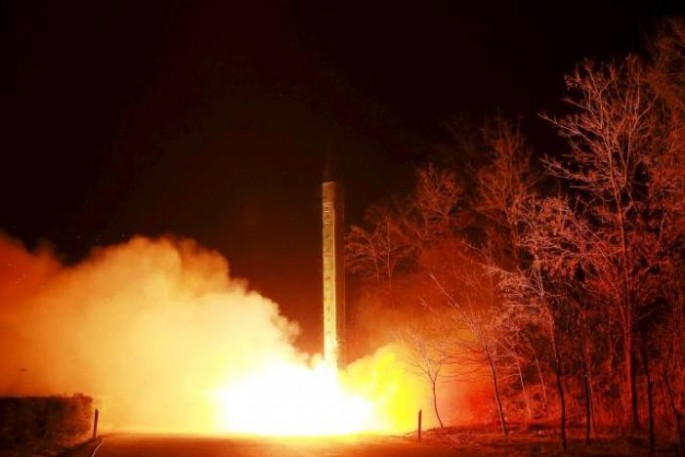China called for a stop to "provocative actions" and urged all parties to maintain calm and restraint to avoid tension from escalating on the Korean Peninsula, the Xinhua News Agency reported.
The Democratic People's Republic of Korea (DPRK) declared on Thursday, March 10, that it would liquidate Republic of Korea's assets in the DPRK after firing two short-range missiles.
The DPRK also said that in response to Seoul's one-sided sanctions against Pyongyang, it will nullify all inter-Korean economic cooperation projects, after the U.N. Security Council adopted a tough resolution against Pyongyang earlier this month.
Reacting to these perceived threats, Chinese Foreign Ministry spokesman Hong Lei said on Thursday, March 10, that "the U.S. and the Republic of Korea have started large-scale joint military drills in the ROK, and the Democratic People's Republic of Korea has consistently responded fiercely."
"China expresses serious concern about the situation," Hong said.
It was not the first time that the DPRK threatened to liquidate ROK assets, with the "limited" capital involved, according to Zhang Liangui, an expert in Korean studies at the Party School of the Central Committee of the Communist Party of China.
"So the decision is actually a symbolic move, serving as a protest," Zhang said.
According to Zhang, "it was unlikely that tension on the peninsula would lessen in the short term" as the U.S. and its allies continue to act in ways that prompt the DPRK to react militarily.
Zhang's view is shared by Shi Yongming, an Asia-Pacific studies researcher at the China Institute of International Relations, who said that the U.S. and ROK are exerting military and political pressure on the DPRK.
Shi added that the U.S. and ROK refused to negotiate unless the DPRK gives up its nuclear program while the two continue to conduct drills on the peninsula.
Shi said this resulted in Pyongyang reacting militarily, which include the recent launching of short-range missiles.
"As the DPRK has no assurance that its security concerns will be addressed, it feels unsafe to engage in negotiations now about its nuclear programs," Shi added.
On Wednesday, March 9, Foreign Minister Wang Yi and U.S. Secretary of State John Kerry had a phone conversation and talked about issues that included the situation on the peninsula, in which Wang called the situation as "highly charged."



























